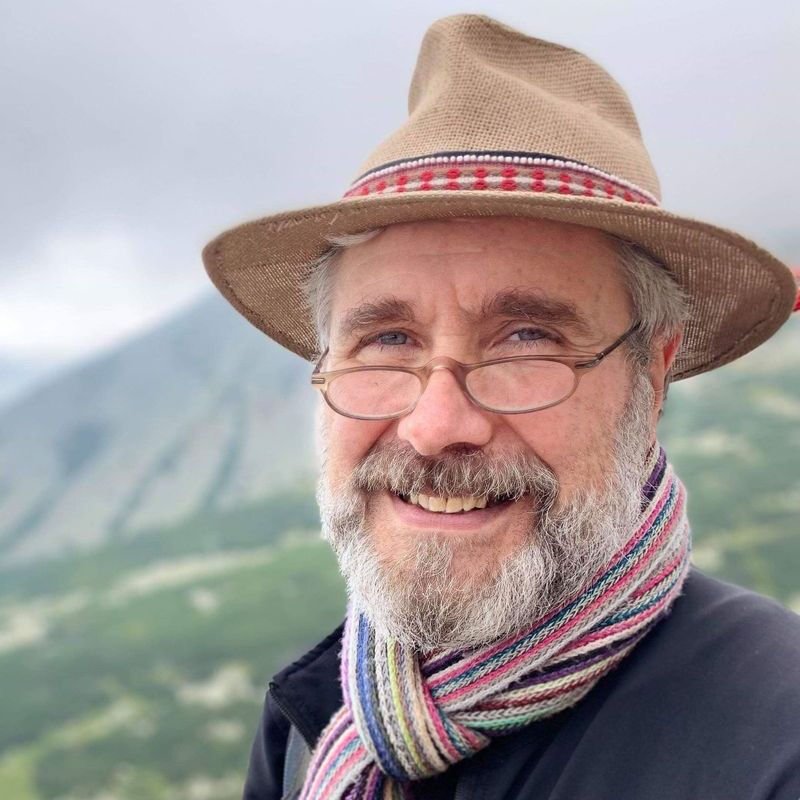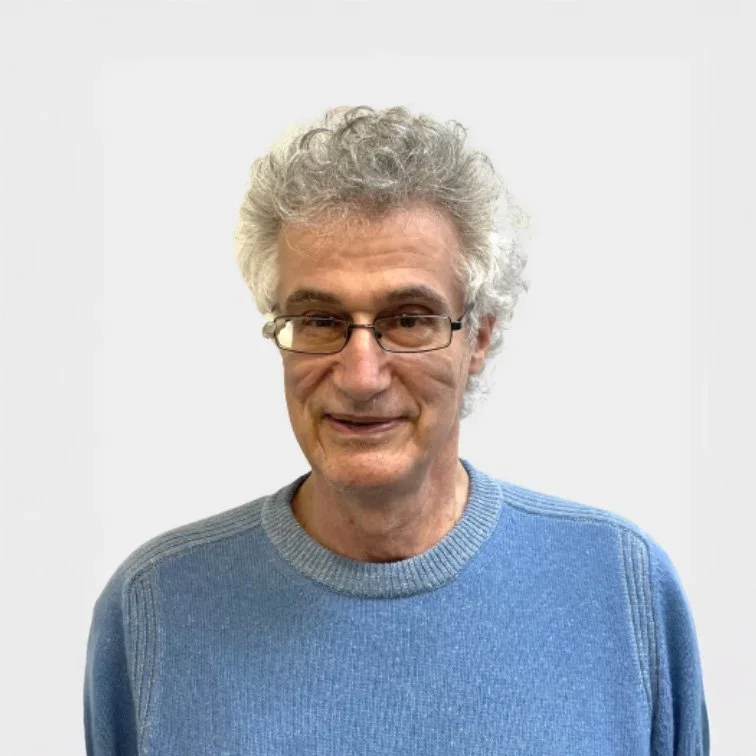
Meet the Advisors
-

Dr. Llew Lewis
Dr Llew Lewis is a psychiatrist with over 25 years of experience, completing his medical degree at the University of Witwatersrand, South Africa, in 1994. He became a Fellow of the College of Psychiatrists (South Africa) in 2000 and completed further specialist training in the UK, earning a Postgraduate Diploma in CBT and CCST in Psychiatry in 2006. He served as a Consultant Psychiatrist with South Essex Partnership Trust, where he led significant service transformation initiatives.
Dr Lewis developed the award-winning Maintaining Adherence Programme, recognised by the Royal College of Psychiatrists and the Patient Experience Network. He held medical leadership roles including Deputy Medical Director in the UK, and later, Clinical Director for Community Mental Health at ACT Health in Australia, where he led the implementation of crisis and outreach services. He received Fellowship of the RANZCP in 2018 and helped develop Canberra’s mental health pandemic response plan.
Currently, Dr Lewis is a Senior Specialist in Canberra’s mental health crisis team, medical lead in a trial on physical and dietary interventions in antipsychotic treatment, and Principal Investigator in a psilocybin trial for treatment-resistant depression. He is an Honorary Clinical Fellow at ANU and founder of Rainbow Mandala Clinic, offering Ketamine-Assisted Psychotherapy and care for ADHD and complex mental health conditions. He holds certifications in Psychedelic Therapies and Medicinal Cannabis and served as Chair of AMAPP’s Educational Subcommittee (2023–2024).
-

Dr. Martin Williams
Martin Williams, PhD is a Senior Research Fellow at the Centre for Mental Health, Swinburne University. Martin’s research background is in Medicinal Chemistry and Pharmacology, and he is Executive Director of Psychedelic Research in Science & Medicine (PRISM) and Vice-President of Entheogenesis Australis (EGA). Martin is a co-investigator on a number of Australian clinical trials of psychedelic-assisted psychotherapy, including the St Vincent’s Hospital Melbourne study of psilocybin-assisted psychotherapy in palliative care; the Monash PsiConnect neuroimaging study of psilocybin with mindfulness meditation; the Swinburne PsiloDep pilot study and 3PAP RCT of 2- vs 3-dose psilocybin-assisted therapy for depression; and several other studies of psilocybin, MDMA and other psychedelics for the treatment of a range of mental health conditions. Martin has been an articulate advocate for psychedelic medical research and the evidence-based clinical translation of psychedelic-assisted therapies for almost twenty years. He has co-authored several academic papers providing an Australian perspective on the subject, including a recent influential Perspectives paper in Frontiers in Psychiatry, and is co-editor of an upcoming special topic issue of Frontiers, Beyond Psilocybin: Exploring the Clinical Potential of Novel and Alternative Psychedelics. He presents regularly at conferences and symposia, and is a frequent commentator on psychedelic research and governance in Australian print and broadcast media.
-

Dr. Nikola Ognyenovits
M.D., FRACGP, FACRRM, FAChAM (RACP).
Dr Nikola Ognyenovits is a Hungarian born psychedelic therapist and addiction medicine specialist physician living and working in Brisbane, Australia.
Dr Nikola has been using ketamine in psychedelic assisted psychotherapy in his community private practice since 2020.
He has trained in Grof Transpersonal Training, transpersonal psychotherapy and shamanic healing practices. He also completed training in ketamine, MDMA and psilocybin assisted psychotherapies.
Dr Nikola is currently engaged in psychedelic research projects and training therapists in this field in Australia.
-

Dr. Sandra Dreisbach
An Ethicist and Psychedelic Ethics specialist with an MA, PhD in Philosophy. She is an Ethics Advisor active in Psychedelic Integration, Education and Advocacy. Sandra is the community leader of EPIC (Ethical Psychedelic International Community), Director of Ethics for Nectara, a psychedelic support ecosystem, Ethics Director for World Psychedelics Day 6/20, and former leader of the Santa Cruz Psychedelic Society. Sandra taught Bioethics at University of California, Santa Cruz, for ten years; worked for many years in the tech industry primarily at Apple; and is a Reiki Master.
-

Dr. Alex De Foe
Founding Director of the Australian Centre for Consciousness Studies, Lecturer at Monash University, Associate Editor at the Journal of Psychedelic Studies and Board Member of the Australian Institute of Parapsychological Research.
Alex is a Melbourne-based writer, educator, and counsellor focused on transcendent states of human consciousness. He holds a Master’s of Counselling degree from Monash University and PhD in experimental psychology from Monash. His foundational work was on transpersonal development, especially in the areas of out-of-body experience (OBE) and dualism states of mind. Presently he is working on projects centred on spiritual neurodiversity and developmental/evolutionary models of consciousness. He is involved in numerous collaborations nationally and internationally, including with the Emergent Phenomenology Research Consortium. As a researcher, he has published over 30 papers, spanning social neuroscience (e.g., on Jung’s archetypal approach), developmental neuro-anthropology (toward a soul-centred theory of psychedelic use), and consciousness (psi and spectral models of human potential). He has supervised honours/masters and PhD student projects on these topics, and is presently available to supervise students in the PhD and Master of Developmental and Educational Psychology programs at Monash.
Lecturer of Consciousness and Psychedelics.
-

Dr. Tra’ill Dowie
Dr Traill Dowie is a philosopher, academic, psychotherapist, minister of religion and martial artist. He is an associate professor of psychotherapy, and he holds dual PhDs in Philosophy and psychiatry. Tra-ill is a research fellow at La Trobe University in Philosophy, He has also trained with the Multidisciplinary Association of Psychedelic Studies (MAPS). Traill was formerly a co -developer and teacher in the certificate of psychedelic assisted therapy at mind medicine. Traill has a deep abiding interest in the history of psychological intervention and medicine more generally including ethno-medicine Traill has formally studied psychodynamic, existential, integrative, transpersonal, and constructivist approaches to therapy. Traill has 25 years of experience working as a clinician in a variety of settings including in private practice and organisations. He began his career working in eco-psychotherapy and wilderness therapy working with complex presentations. Traill has worked in both in-patient and outpatient settings focusing on the treatment of complex trauma. Traill has an abiding interest in all technologies of mind and state alteration, ranging from eastern meditative practices, traditional shamanic techniques (including the use of entheogens), as well as their appearance in psychotherapy and psychology. Traill has become very interested in the way altered states, social context and performativity can lead to profound change in human beings, including the multitude of pathways by which we can organise and optimise human life.Traill considers his greatest achievement in life to be his daughter.
-

Michael Raymond
Airforce Veteran, BEng (Electrical), Lived Experience
Michael Raymond, a retired Australian Airforce Engineering Officer with 16 years of service, has been a prominent advocate of psychedelic plant medicines for veterans over the last four years. His journey in the Airforce included roles as a fast jet Avionics Technician on F/A18F Super Hornets & F-111s, working with Special Operations and other high-security roles. His pursuit of knowledge led him to acquire a Bachelor of Electrical Engineering at the Australian Defence Force Academy (ADFA), culminating in his commission as an officer. After his mental health challenges emerged following his retirement from service, Michael Following the emergence of his mental health challenges post-retirement from service, Michael embarked on a transformative healing odyssey to South America, where he immersed himself in the wisdom of traditional plant medicines. Here, he harnessed the healing potential of psychedelic plant medicines—a pivotal experience that not only likely saved his life but also profoundly altered the trajectory of his journey. Michael’s advocacy journey began in 2019 with the publication of his story, a narrative that later unfolded into engaging conversations at both local and international forums. Notably, he serves as an Ambassador for the Neuromedicines Discovery Centre at Monash University. Presently, Michael is at the helm of Heroic Hearts Project Australia, assuming the roles of Co-Founder & CEO. In this capacity, he pioneers plant medicine programs and research uniquely crafted for veterans and first responders, seamlessly incorporating the transformative power of ayahuasca and psilocybin.
-

Melissa Warner
Melissa Warner is on a mission to elucidate the potential of psychedelics, meditation, and technology to enhance human health and flourishing. She is the Secretary of Psychedelic Research in Science and Medicine (PRISM), co-founder of Cyberdelic Labs, co-director of the Cyberdelic Society and a co-founder of The Australian Psychedelic Society. In her role for PRISM, Melissa supports the development of psychedelic research trials as a Research Associate at Swinburne University. At Cyberdelic Labs she is an experience designer for virtual reality meditation adventures. As a scientist, meditation guide and artist, Melissa seeks to nurture an ecosystem that embraces the capacities of creativity, renewal and collaboration.
-

Dr. Anthony Helman
Psychedelic Medicine Specialist
General Practitioner, General Practitioner Supervisor, and Psychedelic PsychotherapistAfter graduating from the University of Adelaide, Dr. Helman went on to further study obtaining Masters degrees in both clinical nutrition and psychiatry. He has also pursued his interest in various aspects of holistic and complementary medicine, including naturopathy and acupuncture. Dr. Helman has worked as a senior General Practitioner (GP) educator with the RACGP and is passionate about teaching general practitioners in training. Alongside his work as GP, practice principal and supervisor, Dr. Helman is also a certified addictions GP and methadone prescriber, and psychedelic psychotherapist for various psychedelic trials, including at Monash, Swinburne and Australian National Universities.
AMAPP acknowledges the following advisors for their contributions to the psychedelic space. They fulfill diverse roles within the community, each with unique missions and areas of focus.
The inclusion of these advisors on the AMAPP website signals mutual respect and shared values. However, this does not necessarily imply that AMAPP endorses all their actions and beliefs, nor is the endorsement necessarily reciprocated. We strongly believe in recognizing and engaging with a wide spectrum of viewpoints, as befits our role as a multidisciplinary organization. We value the unique perspectives each advisor brings, fostering a dynamic exchange of ideas and ensuring that AMAPP mirrors the diverse psychedelic community. This approach enhances our capacity to achieve our vision and mission of supporting the legal, ethical, accountable, and effective implementation of Psychedelic Assisted Therapies (PAT) in Australia.